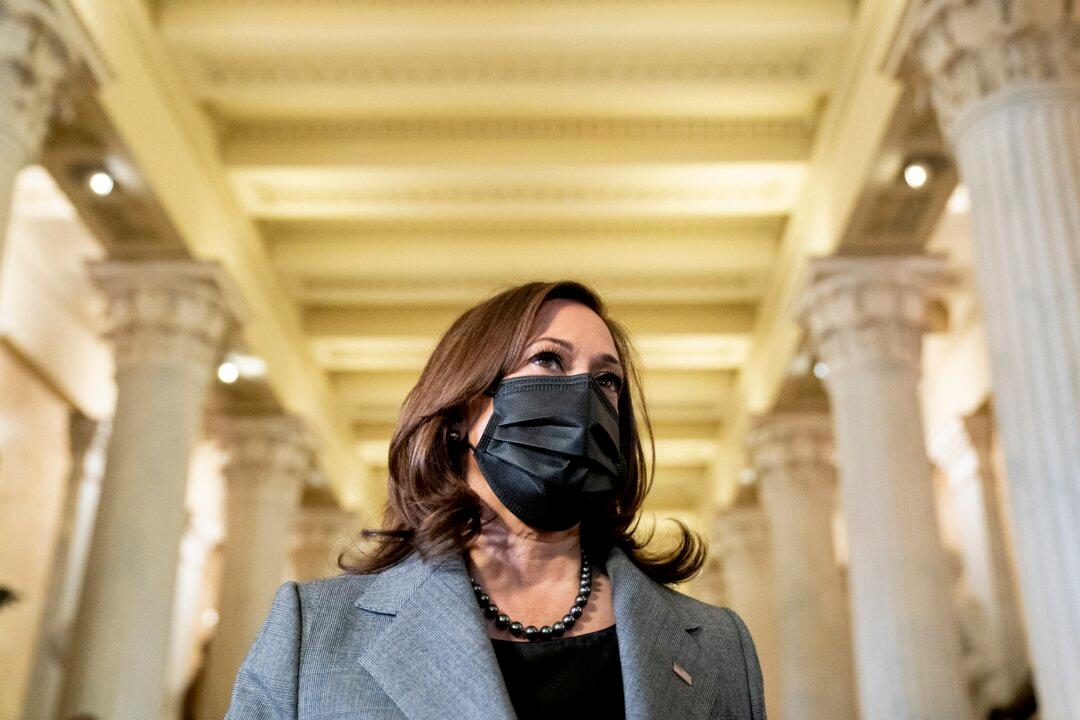Federal prosecutors who falsely said then-Vice President-elect Kamala Harris was in the U.S. Capitol on Jan. 6, 2021, were scolded by a federal judge on Feb. 10.
The government claiming Harris was in the building despite previously admitting she was not “suggests a certain lack of attention and care in the prosecution of this case, undermining any confidence the Court can have in the Government’s representations,” U.S. District Judge Trevor McFadden, a Trump nominee, wrote in an order.





